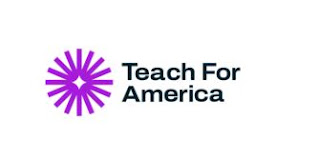Thursday, June 22, 2023
Moms for Liberty and Hitler
Why Bother Accrediting Colleges
Ron DeSantis filed yet another lawsuit against the feds today. This time his team has cranked out a 41 page argument against the very idea of college accreditation.
Congress shouldn't "delegate its legislative authority to trade or industrial associations or groups," the suit argues, yet "under the current scheme, private accreditors act '[a]s gatekeepers to $112 billion in annual federal student aid.'"
The DeSantis beef boils down to being required to get accreditation in order to collect that federal aid, including aid to students, who can only get college dollars if they're attending an accredited institution.
The lawsuit nods at the reasoning behind this, the reasonable idea that students shouldn't be able to use taxpayer dollars to attend "Bob's Underwater Basket Weaving University." But having nodded, it moves quickly on. If Ron DeSantis wants his state to launch "Ron's College Of Aryan Knowledge," who are hte feds to tell him he can't get federal tax dollars, directly or indirectly, to support it?
DeSantis is not the only person railing against the "accreditation cartel." That phrase also appears in a "report" issued earlier this week by the Heritage Foundation, announced with a post entitled "It’s Time for Congress to Dismantle the Higher Education Accreditation Cartel."
Their aim is much the same. Colleges and universities should be able to get their hands on that money without having to convince some accreditation cartel member that they are "woke" enough or "follow regulations" or are, you know, "any good."PA: Penncrest on PBS NewHour (with Penncrest Reader)
PA: Penncrest Passes Reading Restrictions
In which the newest version of the reading restrictions pass, because that's what God wants.
PA: Board Member "I don't care what the law says."
Wednesday, June 21, 2023
Teach For America Is Rebranding Again (Again)
This view is moving and remarkable, and it has called us to launch a new way of presenting ourselves to the world: a new brand identity to embody the work of this moment and the enduring values of equity, excellence, and leadership that underlie it. This includes a new look, a new logo (for the first time in 25 years), and a new tagline that concisely states what animates our work at its core: “Illuminate every learner.”
Our hope is that out in the world, our new brand identity will illuminate our work and ignite a spark in others, inspiring them to share our vision for the future. It’s rooted in hope, grounded in reality, and accountable to our kids and communities. While a brand is more than just a look, a logo, a color palette, or a tagline, those things are one way we shine a light on who we are today and who we aspire to be.
Teach For America is a diverse network of leaders who confront educational inequity by teaching for at least two years and then working with unwavering commitment from every sector of society to create a nation free from this injustice.
As educators, advocates, entrepreneurs, policymakers, and community members, we fight for the aspirations of students and families.
| The old logo, just in case you were wondering |
NC: Charter Fires Teacher For Teaching Book About Race
on February2, 2023, Gray was informed by the school’s principal Keisha Rock that his contract was being terminated effective immediately. The ostensible grounds, he was told, was the emergence of parental opposition over “Dear Martin” and other aspects of Gray’s teaching content related to racial equality. As Rock stated, “I cannot address complaints made by parents all day.”
Rock also told Gray that she had been in constant communication with the Board of Directors,“all day long”, as she put it, which had also received parental complaints regarding Gray, and that the Board had authorized his immediate termination.
According to the lawsuit, Rock also saw firing Gray as the only way to avoid pressure from North Carolina Department of Public Instruction (DPI) as a complaint had been circulated to DPI that a Charlotte Secondary teacher was teaching Critical Race Theory.
Monday, June 19, 2023
Aldeman Tries Making a Progressive Case for Choice
States should protect against bad actors by requiring that any school accepting public money be prohibited from discriminating based on a student’s national origin, race, color, religion, disability, gender or familial status. If public money is going to private educational programs, they must be open and accepting of all students, and there must be protections and avenues for students and families to resolve conflicts. This should be a minimum bar to accepting public money.









.jpg)

